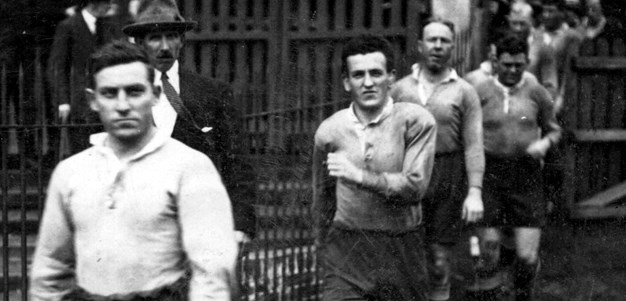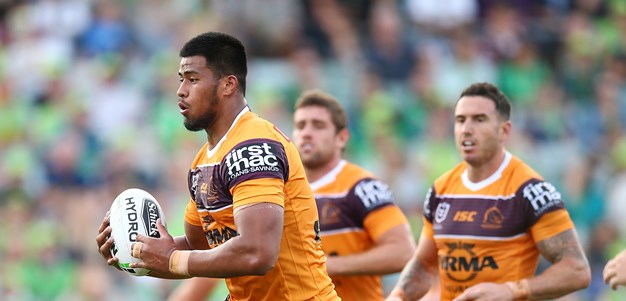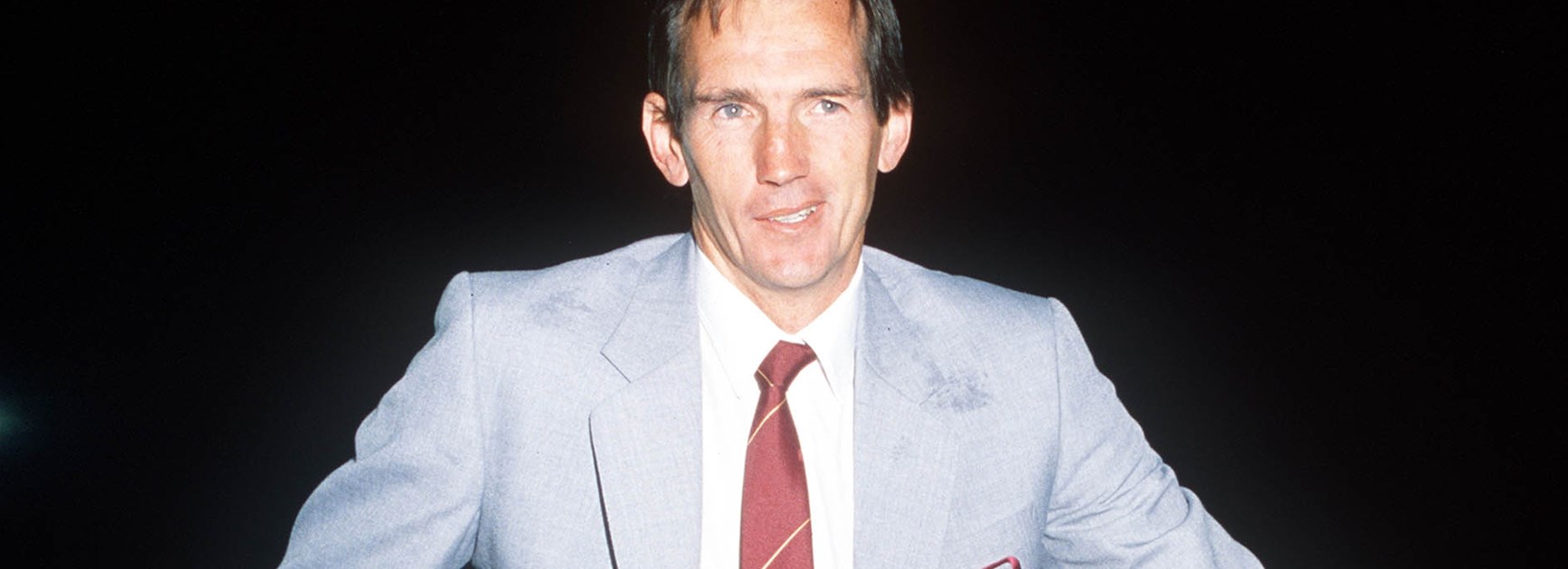
"He was an absolute legend."
That is how Wayne Bennett started his tribute to the late Duncan Thompson… one master coach to another.
Thompson was honoured at the Maroons captain's run on Tuesday when the side wore replica strips of the jersey worn by the 1919 Queensland team, which Thompson captained after recovering from being shot through the lung on the battlefields of France in World War I on April 5, 1918.
After a stellar career at halfback for Queensland and Australia, Thompson went on to be one of the greatest coaches of any era, leading Toowoomba Clydesdales to six Bulimba Cup titles in the 1950s and coaching Queensland with an enterprising coaching ethos known as "contract football".
Thompson's grandsons Phil and Duncan Stuart, who attended the Maroons captain's run, had wondered what influence their grandfather had on Bennett and asked the author of this story to check it out.
Bennett revealed how he adopted contract football at Souths Magpies in the late 1970s and how he continues to be influenced by Thompson's philosophies today.
"Part of Duncan’s philosophy is part of mine – that you support the player with the ball and let the ball do the work. It was about moving the footy around and all that sort of stuff," Bennett said.
"I’m sure we were all influenced by him without knowing it, because we weren’t there in the 1950s.
"In that era and in that time, he was an absolute legend in Toowoomba. They did remarkable things. Every player that ever played under him just loved him.
"Not that he wasn’t hard on them or have good discipline, because he did. He taught them how to play.
"He used to have these two-minute lectures on the value of a yard, changing the point of attack and how fast you could run in 10 seconds…and he had great success."
Thompson's legend was secure when, in the early 1960s, an awe-inspired Bennett shyly walked into his sports store in Toowoomba just to catch a glimpse.
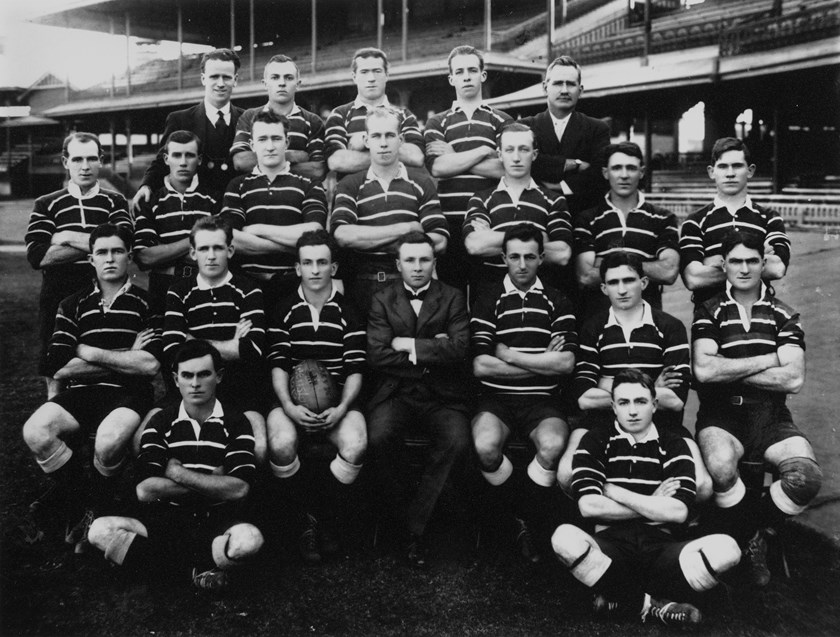
"I knew Duncan Thompson was famous and that he had a sports store in Toowoomba. I heard so much about him that I just wanted to see him," Bennett recalled.
"I didn’t introduce myself, I was about 10 or 12, and I loved his football boots. He used to have his own brand, the Duncan Thompson boots.
"I walked in as a shy kid. He was a little bloke who might have said ‘g’day’ to me as I was looking at shoes."
Fast forward a decade and Bennett met Thompson again, only in a vastly different context.
"The next time I met him, I was 21 and I was close to being picked for Australia,” Bennett recalled.
"We had gone to Roma to play a representative game for Toowoomba and he was there at the game, wearing one of those little pork pie hats that they wore.
"He came up to me and he said 'you are close to being picked for Australia', because he had been an Australian selector, but wasn’t at the time. He then said 'do you know what makes an Australian player?' I said 'no, I don’t'. He said 'three selectors'. I loved it, because he was 100 per cent right. Three selectors make an Australian player."
That anecdote reveals Bennett's abiding love of a poignant quip, and he went on to represent Queensland and Australia as a player before embarking on his own stellar coaching career.
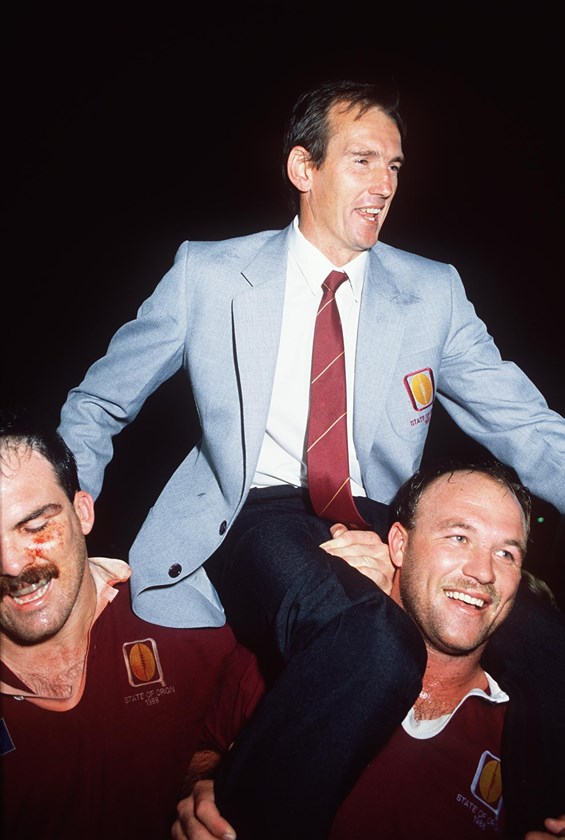
He never really crossed paths with Thompson again. He did however with Duncan's son Ian Thompson, when he was coaching Souths Magpies in the late 1970s. Ian turned up at Davies Park with the concept of "contract football" embedded deep within his soul.
"Cyril Connell had brought Ian along because Cyril absolutely loved Duncan and had played a lot of football under him at Toowoomba, and for Queensland in that era," Bennett said.
"Ian hadn’t coached, but he knew his father’s game plan and tactics. He must have gone home every night and talked about them, and Ian must have listened. His knowledge was unbelievable.
"Ian pleaded with me to try this contract football. I was a young coach. I was impressionable, so I did. We went out at the start of that 1978 season and absolutely blew everybody apart playing contract football, although not exactly the way they had played back in Duncan’s era.
"Then the opposition shut it down pretty quickly, so I had to go back to what I did know, but for the first six or seven games we were winning by 30 points."
Bennett explained how it worked.
"You’d go to the line, and then prop… and then have someone take the ball off you or offload. What the opposition did was flood us in defence and force errors on us…. and had two or three guys going for where the ball was going back to.
"When contract football was introduced in the 1950s, the defensive line only had to go back one metre. It was only logical to run forward into that line because it was virtually stationary. You’d plant your bum, turn and offload… and then someone would come along and take the ball off you.
"That allowed that (contract football) to be played that way.
"Duncan was big on the man carrying the ball being supported and changing the point of attack – so taking the defence one way and the attack the other way – and the value of a second.
"His teachings would still be relevant today, but it is difficult to play contract football the way the game is now played.
"It did work in the late 1970s. Well, it did work until they all got on to it."
As Bennett's career unfolded, he had players journeying to Souths and Brisbane just to play under him and to get a sprinkle of his magic dust.
At the Brisbane Broncos it was the likes of Glenn Lazarus, Chris Johns, Trevor Gillmeister and company.
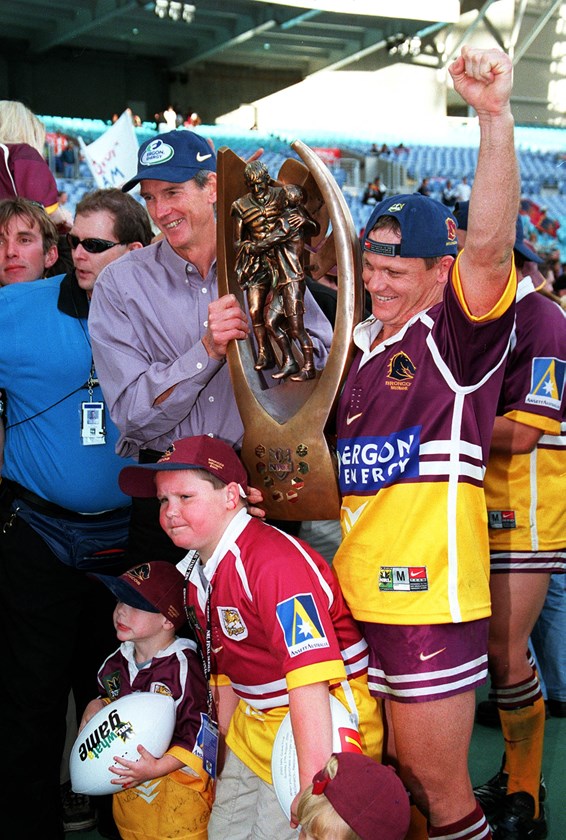
In the 1950s, Thompson was his own beacon on the hill up at Toowoomba.
"He attracted that many players to play for Toowoomba in the 1950s – Ken McCaffery and Don Furner are two just off the top of my head.
"They were Sydney-based players who came to Toowoomba just to play with Duncan Thompson."
Thompson was no soft touch, but he was a coach who knew that it takes all kinds to make a football team.
Bennett, when appointed coach of Queensland in 1986, was told a story that stills resonates with him today.
"Duncan dropped Don Furner once because he got to training late after being tied up at the races, even though they had a big game coming up… and Don was a big name at the time and playing for Australia," Bennett recalled.
"But the story I love is the one that Ron McAuliffe told me. When they gave me the Queensland coaching job back in 1986, they were worried about my handling of Wally Lewis, so Ron, who was chairman of the QRL at the time, grabbed me and said 'Wayne, the greatest coach we have ever known was Duncan Thompson'.
"Ron was the secretary of the Brisbane Rugby League when Duncan was coaching Queensland. He said that he was a very firm disciplinarian, but also flexible and smart enough to know when to pull his head in."
It is then that McAuliffe told Bennett a story about when Thompson was coaching Queensland and training at the Brisbane Exhibition Ground. Mick Crocker was one of the best forwards of the era but laid back and not big on being on time.
"So Ron said Duncan had called the first training session at the Brisbane Exhibition Ground and Crock' was in the team," Bennett continued.
"He said 'about five minutes to four, Duncan came up to me and said 'have you heard from Mick Crocker yet?' Ron McAuliffe said 'no, I haven’t heard a thing' and Duncan said ‘Okay, we’ll give him a few minutes'.
"The clock hits four o’clock and if you know the Exhibition Ground there is a big clock on the tower. Duncan comes back at four o'clock and says 'is there is any sign of Mick Crocker?' He said ‘no’. He said 'Okay, I want you to move the players around the other side of that clock so nobody can see what the time is’.
"At five past four Duncan comes back to Ron and says 'have you heard from Mick Crocker yet’. He says 'no'. Duncan says 'well when he turns up, you give him the best excuse he’s ever had'."
A master stroke.
Thompson was telling McAuliffe to give Crocker a great excuse for being late (wink, wink…nudge, nudge) to pass onto the coach.
"Sure enough Crocker turns up at ten past four, just strolls in," Bennett chuckled.
"So Ron gives him the best excuse he’s ever had, walks over to Duncan and gives him the excuse and Duncan says 'we'll accept that. You are in the team and let’s get to training'."
The moral of the story was clear.
"What McAuliffe was telling me was to be flexible with players and not to have a Hitler-type attitude to them, and that if they were a little bit late to training and really good players to try and learn to live with it a little bit,” Bennett said.
"That is what Duncan was like, even though he was tough with discipline. I learned from it."
Bennett coached rogues, ruffians, religious types and rigorous trainers – the whole lot. He learned to handle highly disciplined characters such as Darren Lockyer and Shane Webcke differently to scallywags like Joe Kilroy and Colin Scott, while still getting the best out of them.
In fact, Kilroy used to have some great excuses for being late to training, including being stuck on Cunningham's Gap with his removal van, which Bennett would accept with a wry smile.
Bennett remains in awe of Thompson, and finished his monologue with this:
"I have talked to so many of his ex-players. They loved Duncan and he was so influential with them all," Bennett said.
"The Toowoomba teams of the 1950s, and the Queensland teams, were just outstanding. It was no fluke."
